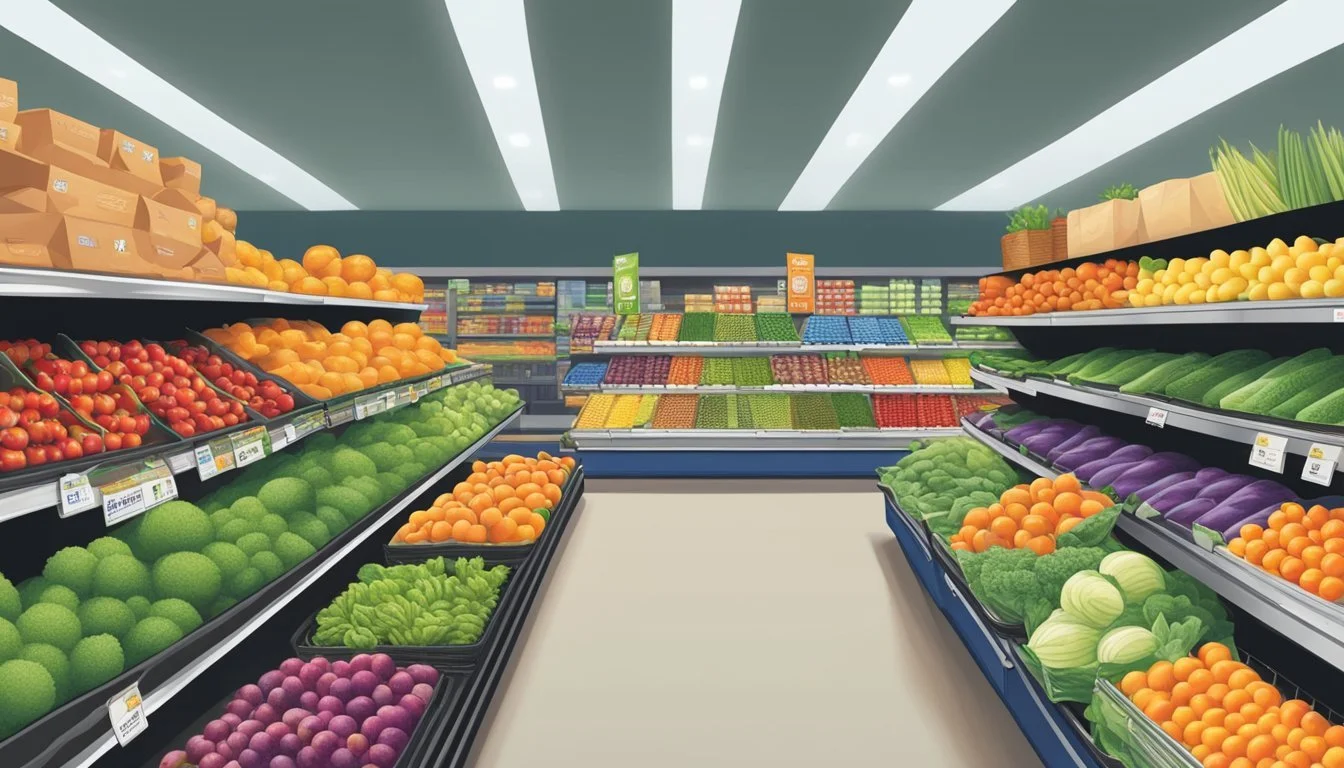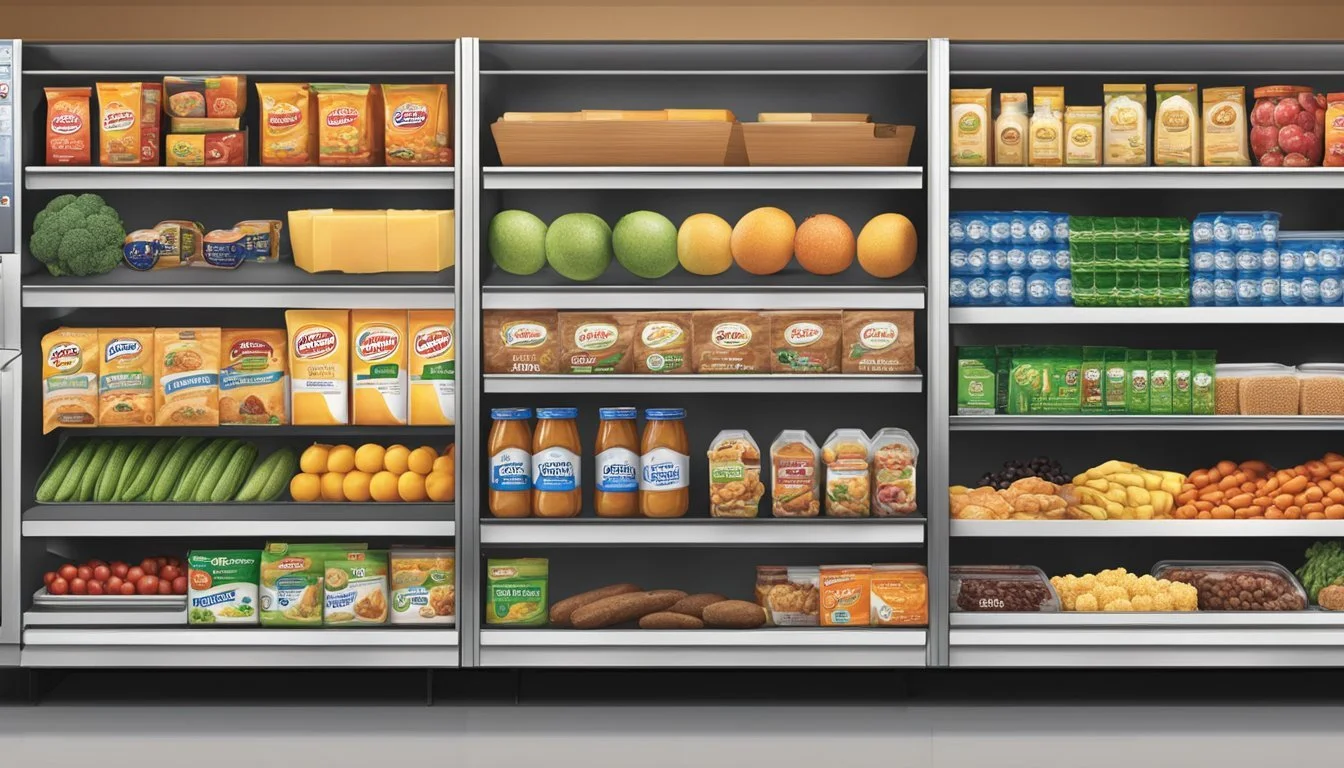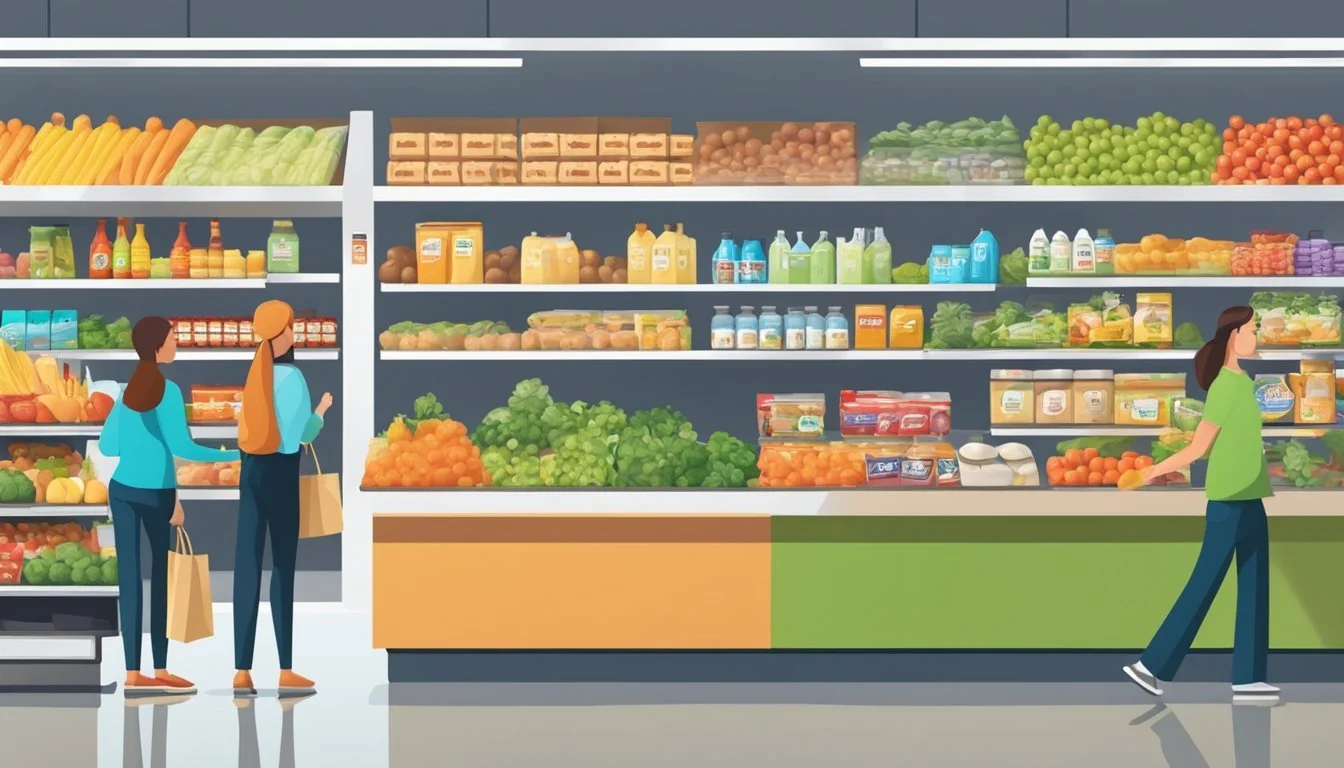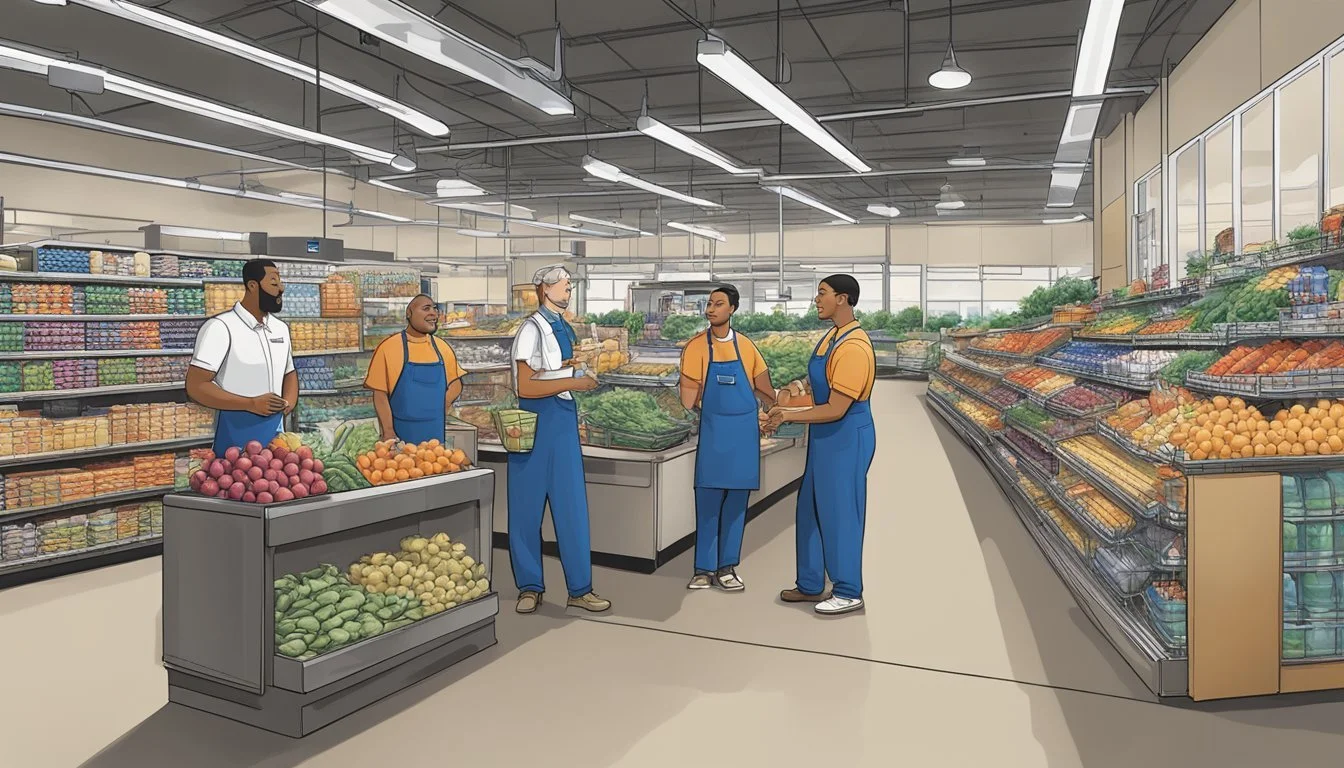Brookshire Grocery Company vs Kroger
A Comprehensive Comparison of Prices, Selection, and Service
Brookshire Grocery Company and Kroger are both well-established players in the competitive grocery retail landscape. Brookshire operates over 200 stores across four states, while Kroger boasts a much larger national presence. Both companies have adapted to changing consumer preferences and market conditions over the years.
The choice between Brookshire and Kroger often comes down to factors like store locations, product selection, pricing, and customer service. Brookshire tends to have a stronger regional focus, particularly in Texas and neighboring states. This allows them to tailor their offerings to local tastes and preferences. Kroger, on the other hand, leverages its larger scale to provide a wide range of products and competitive pricing across its stores nationwide.
Each chain has its own unique strengths. Brookshire is known for its community involvement and personalized shopping experience. Kroger has invested heavily in technology and e-commerce capabilities to enhance convenience for customers. Ultimately, the "better" choice depends on individual shopper priorities and the specific stores in their area.
Historical Background
Brookshire Grocery Company and Kroger both have rich histories dating back to the early 20th century. These companies grew from humble beginnings to become major players in the U.S. grocery industry, expanding their operations across multiple states.
Foundation and Expansion
Wood T. Brookshire founded Brookshire Grocery Company in 1928 with a small store in Tyler, Texas. The company initially operated as part of Brookshire Brothers before branching off independently. Brookshire's expanded throughout East Texas, gradually increasing its footprint.
Kroger's roots trace back to 1883 when Barney Kroger invested his life savings to open a grocery store in Cincinnati, Ohio. By 1902, Kroger had grown to 40 stores and incorporated as The Kroger Grocery and Baking Company.
Both companies focused on quality and customer service, which helped drive their early success and expansion efforts.
Key Milestones in Business Development
Brookshire Grocery Co. steadily grew its presence in Texas, Louisiana, and Arkansas. The company introduced its own manufacturing facilities to produce private-label goods, enhancing product control and profitability.
Kroger's growth strategy included numerous acquisitions of regional grocery chains. This approach allowed Kroger to rapidly expand its geographic reach across the United States.
In 1929, Kroger became the first grocery chain to monitor product quality and test foods sold to customers. Brookshire's introduced its FRESH by Brookshire's concept in 2011, offering an upscale shopping experience with a focus on organic and specialty items.
Both companies adapted to changing consumer preferences, implementing technological advancements and expanding their product offerings to remain competitive in the evolving grocery landscape.
Business Model and Services
Brookshire Grocery Company and Kroger employ distinct business models and service offerings to cater to their customers' needs. Both supermarket chains focus on providing quality products and services, but differ in their approaches to store formats, customer service, and loyalty programs.
Store Formats and Specialized Services
Brookshire Grocery Company operates several store formats, including Brookshire's Food Stores, Super 1 Foods, and Spring Market. These stores cater to different customer segments, offering a range of products from basic groceries to specialty items. Kroger, on the other hand, has a more extensive network of store formats, including traditional supermarkets, multi-department stores, and no-frills warehouse formats. Kroger also operates fuel centers and pharmacies in many locations, providing additional convenience to shoppers.
Both chains offer specialized services such as deli counters, bakeries, and floral departments. Kroger has expanded its offerings to include financial services and digital sales platforms, diversifying its revenue streams beyond traditional grocery retail.
Customer Service Approach
Brookshire Grocery Company prides itself on personalized customer service, emphasizing a community-oriented approach. The company trains its employees to provide attentive and friendly assistance, focusing on building relationships with local customers.
Kroger aims for efficient and technology-driven customer service. The company has invested in self-checkout systems, mobile apps, and online ordering platforms to streamline the shopping experience. Kroger's size allows it to offer a wider range of products and services, potentially at more competitive prices.
Loyalty Programs and Promotions
Both chains utilize loyalty programs to reward customers and drive repeat business. Brookshire Grocery Company's "Thank You Card" program offers personalized discounts and fuel rewards. The program is designed to be simple and straightforward, appealing to their community-focused customer base.
Kroger's loyalty program is more extensive, integrating with their mobile app and offering digital coupons, fuel points, and personalized offers based on shopping habits. The company leverages its vast data collection capabilities to tailor promotions to individual customers, potentially offering more targeted savings opportunities.
Kroger also runs larger-scale promotions and sales events, leveraging its size to negotiate deals with suppliers and pass savings on to customers. Brookshire Grocery Company tends to focus on local promotions and partnerships with regional brands, reinforcing its community-centric image.
Product Range and Quality
Brookshire Grocery Company and Kroger both offer diverse product selections, emphasizing fresh produce, quality meats, and in-house brands. Each store strives to meet customer needs with varying approaches to product range and quality.
Produce and Meat Departments
Brookshire's produce department showcases a wide array of fresh fruits and vegetables, locally sourced when possible. Their meat counter features high-quality cuts, including USDA Choice beef and organic options.
Kroger's produce section typically offers a larger variety, including exotic fruits and organic selections. Their meat department provides an extensive range of fresh and pre-packaged options, catering to different dietary preferences.
Both stores prioritize freshness, but Kroger's larger size often allows for more diverse offerings. Brookshire's, however, may have an edge in local sourcing for certain regions.
Deli, Bakery, and Dairy Selection
Brookshire's deli offers made-to-order sandwiches, hot meals, and a selection of specialty cheeses. Their bakery produces fresh bread daily, along with custom cakes and pastries.
Kroger's deli department generally provides a broader range of prepared foods and international cheese options. The bakery section in Kroger stores often includes artisanal bread varieties and a wider assortment of desserts.
In the dairy aisle, both retailers stock national brands and alternatives like plant-based milk. Kroger typically offers more variety due to its larger store format.
In-House Brands and Exclusives
Brookshire's "Fresh by Brookshire's" brand encompasses a range of products across various departments, focusing on quality and value. This line includes grocery staples, snacks, and ready-to-eat meals.
Kroger boasts several private label brands, such as Simple Truth for organic and natural products, and Private Selection for premium offerings. These brands span numerous categories, from pantry essentials to specialty items.
Both retailers use their in-house brands to provide cost-effective alternatives to national brands. Kroger's larger scale allows for a more extensive private label range, while Brookshire's focuses on regional preferences in their exclusive offerings.
Pricing Strategy
Brookshire Grocery Company and Kroger employ distinct pricing strategies to attract and retain customers. Their approaches differ in terms of everyday pricing, promotions, and competitive positioning.
Comparison with Competitors
Brookshire Grocery Company focuses on competitive everyday prices while offering targeted promotions. They aim to provide value through weekly specials and loyalty programs.
Kroger, on the other hand, adopts a more aggressive pricing strategy. They frequently use promotional offers to drive online adoption, such as $20 off $100+ orders or free items with purchase.
When compared to major competitors like Walmart, Kroger's prices tend to be slightly higher. An independent study found Walmart to be 7-8% cheaper for a basket of 50 identical grocery items. Walmart's total came in at $107.82, while Kroger's was $116.83.
Kroger's strategy involves leveraging their Kroger Plus Card to provide additional discounts. This helps narrow the price gap with competitors and increases customer loyalty.
Both companies continuously adjust their pricing to maintain market share in the highly competitive grocery industry. They balance the need for competitive prices with maintaining profitability.
Store Experience and Shopping Environment
Brookshire Grocery Company and Kroger offer distinct shopping environments that cater to different customer preferences. Both chains prioritize cleanliness and efficient store layouts, but their approaches to customer service and overall atmosphere differ.
Cleanliness and Store Layout
Brookshire's stores are known for their clean and well-maintained interiors. The family-owned company takes pride in presenting a tidy shopping environment. Aisles are typically wide and uncluttered, allowing for easy navigation. Product sections are logically organized, making it simple for customers to find what they need.
Kroger also maintains clean stores but focuses on maximizing space efficiency. Their layouts often feature more compact aisles and strategic product placement to encourage impulse purchases. Some Kroger locations offer an expanded selection of departments, including clothing and home goods, creating a one-stop shopping experience.
In-Store Experience
Brookshire's emphasizes personalized customer service. Their smaller, community-focused stores often foster a friendly atmosphere where staff members know regular customers by name. The company trains employees to be attentive and helpful, contributing to a more intimate shopping experience.
Kroger's larger stores provide a wider range of amenities. Many locations feature in-store pharmacies, banking services, and fuel centers. Self-checkout options are more prevalent in Kroger stores, catering to customers who prefer a quicker, more independent shopping trip. While customer service may be less personalized, Kroger often compensates with extended hours and a broader product selection.
Geographical Presence and Market Penetration
Brookshire Grocery Company and Kroger have distinct geographical footprints and market penetration strategies. Their regional focus and competitive positioning differ significantly across the United States.
Regional Footprint
Brookshire Grocery Company operates primarily in Texas, Louisiana, Arkansas, and Oklahoma. The company has over 200 stores across these four states, with a strong presence in smaller towns and rural areas. In 2021, Brookshire expanded its reach by acquiring Reasor's, adding 17 stores in Oklahoma to its portfolio.
Kroger, in contrast, has a much larger national presence. The company operates nearly 2,800 stores across 35 states and the District of Columbia. Kroger's strongholds include the Midwest, South, and parts of the West Coast.
National vs. Regional Competitors
As a regional grocer, Brookshire focuses on tailoring its offerings to local preferences. This strategy allows them to compete effectively against national chains in their core markets. Brookshire's smaller size enables faster decision-making and adaptability to regional trends.
Kroger, being a national player, faces competition from both regional grocers and other national chains. Its scale allows for greater purchasing power and the ability to invest in technology and e-commerce solutions. However, Kroger must balance national strategies with local market needs.
Both companies face challenges from non-traditional competitors like Amazon and Walmart in the grocery marketplace. Brookshire's regional focus may provide some insulation, while Kroger's national presence allows it to compete more directly in various markets.
Corporate Identity and Brand Image
Brookshire Grocery Company and Kroger have distinct corporate identities and brand images that shape their market positions. Both companies emphasize customer service and community involvement, but their approaches differ in key areas.
Mission, Vision, and Core Values
Brookshire Grocery Company's mission focuses on delivering exceptional experiences and value to customers. Their core values include excellence in service, integrity, and community support. The company's vision emphasizes growth while maintaining family-owned roots.
Kroger's mission centers on feeding the human spirit. Their core values include honesty, integrity, respect, diversity, safety, and inclusion. Kroger's vision aims to serve America through food inspiration and uplift.
Both companies prioritize customer satisfaction and community engagement. However, Brookshire's emphasizes its regional, family-owned nature, while Kroger positions itself as a national leader in food retail innovation.
Public Perception and Brand Loyalty
Brookshire Grocery Company enjoys strong regional loyalty, particularly in Texas, Louisiana, and Arkansas. Customers appreciate the company's local focus and community involvement. The brand is often perceived as friendly and personable.
Kroger, as a larger national chain, has broader recognition but faces more varied perceptions across different regions. The company's size allows for extensive loyalty programs and digital innovations, which many customers value.
Both companies actively seek customer feedback to improve their services. Brookshire's smaller size enables more personalized interactions, while Kroger's scale facilitates extensive data analysis for tailored experiences.
Public perception of both brands is generally positive, with each having loyal customer bases in their respective markets.
Leadership and Work Culture
Brookshire Grocery Company and Kroger have distinct leadership styles and workplace cultures that shape their operations. Both companies prioritize employee satisfaction and growth, but differ in their approaches to management and workforce engagement.
Current Leadership
Brad Brookshire serves as Chairman and CEO of Brookshire Grocery Company, continuing the family leadership tradition since 1928. The company maintains a regional focus, operating over 200 stores across four states. Kroger, in contrast, is led by CEO Rodney McMullen, who oversees a much larger national operation with nearly 2,800 stores.
Brookshire's leadership emphasizes community involvement and personal connections, reflecting its smaller scale. Kroger's leadership team manages a more complex organization, focusing on innovation and strategic growth initiatives.
Employee Relations and Satisfaction
Brookshire Grocery Company employs approximately 19,000 workers and prides itself on fostering a family-like atmosphere. The company offers various employee benefits and development programs to support its workforce. Kroger, with over 450,000 employees, implements large-scale initiatives for worker engagement and career advancement.
Both companies strive to create positive work environments, but their approaches differ. Brookshire's smaller size allows for more personalized employee interactions, while Kroger's scale enables broader professional opportunities and resources for its staff.
Employee satisfaction surveys and workplace awards provide insights into each company's success in cultivating a positive work culture. These metrics help gauge the effectiveness of their respective leadership and employee relations strategies.
Sustainability and Community Involvement
Brookshire Grocery Company and Kroger both prioritize sustainability and community engagement. They implement environmental initiatives and support local communities through various programs and partnerships.
Environmental Initiatives
Kroger has made significant strides in its environmental efforts. The company achieved 100% store participation in its Zero Hunger | Zero Waste Food Rescue program. This initiative aims to reduce food waste and combat hunger simultaneously.
Kroger's Board of Directors oversees the company's ESG (Environmental, Social, and Governance) strategy. A dedicated Public Responsibilities Committee provides oversight of sustainability goals and social impact initiatives.
Brookshire Grocery Company focuses on sustainability in its operations. The company implements energy-efficient practices in its stores and distribution centers. They also work to reduce waste through recycling programs and responsible packaging choices.
Support for Local Communities
Brookshire Grocery Company emphasizes community involvement as a core value. They donate to organizations supporting hunger relief, education, health, and family wellbeing. The company also assists first responders, military personnel, and veterans.
Kroger's community support extends beyond its food rescue program. They partner with local organizations to address social issues and improve community well-being. The company invests in education initiatives and supports health-related causes.
Both companies prioritize local sourcing. They work with regional farmers and producers to stock their shelves with fresh, locally-grown products. This practice supports local economies and reduces transportation-related environmental impacts.
Future Outlook
Brookshire Grocery Company and Kroger are poised for significant changes in the coming years. Both retailers are expanding their footprints and adapting to evolving consumer preferences and technological advancements in the grocery industry.
Expansion Plans and Market Strategies
Brookshire Grocery Company recently finalized its acquisition of Reasor's, adding to its portfolio of brands including Brookshire's, Super 1 Foods, FRESH by Brookshire's, and Spring Market. This move strengthens its presence in Texas and expands into new markets.
Kroger is pursuing a major merger with Albertsons, valued at $24.6 billion. If approved, this deal would reshape the competitive landscape of the U.S. grocery industry. The combined entity would create a formidable competitor to Walmart in many markets.
Both companies are likely to focus on strategic store openings and renovations to enhance their market share. Digital initiatives and e-commerce capabilities will play a crucial role in their growth strategies.
Adaptation to Industry Trends
Grocery retailers are embracing technology to improve operations and customer experience. Self-checkout kiosks, mobile apps for digital coupons, and personalized promotions are becoming standard features.
Sustainability is gaining importance. Expect both Brookshire and Kroger to increase their focus on eco-friendly packaging, local sourcing, and reducing food waste. Plant-based and organic product offerings will likely expand to meet growing consumer demand.
E-commerce and delivery services will continue to evolve. Kroger has invested heavily in automated fulfillment centers, while Brookshire may need to accelerate its digital transformation to remain competitive.
Both companies will likely enhance their private label offerings to differentiate themselves and improve profit margins. Loyalty programs and data analytics will be crucial for tailoring promotions and product assortments to local preferences.









